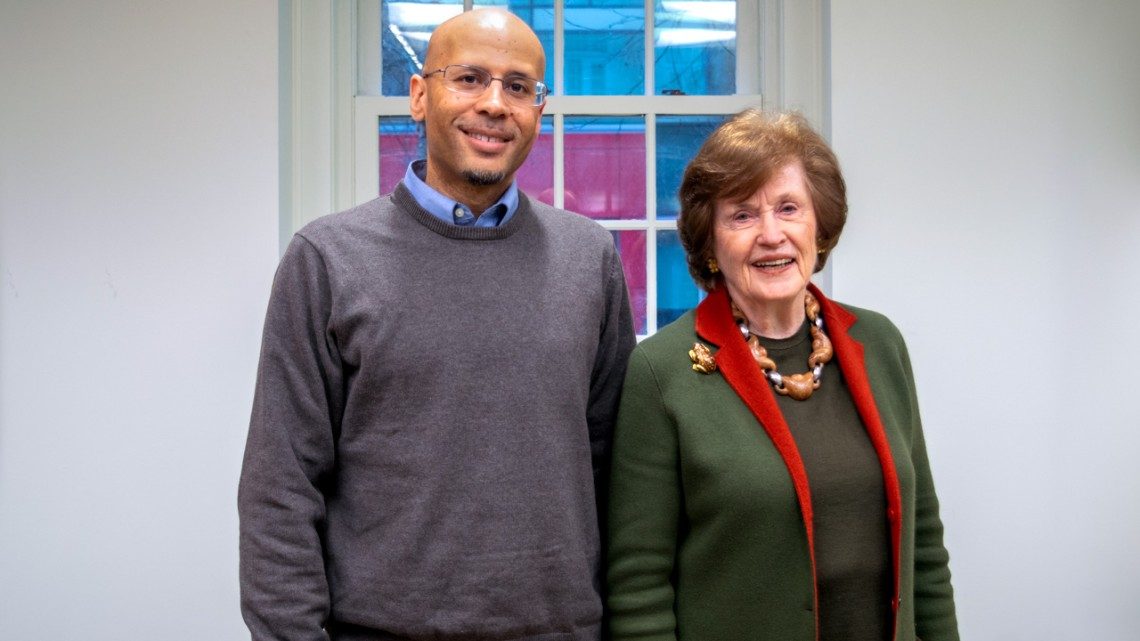Read the full story by Krishna Ramanujan in the Cornell Chronicle.
A $30 million gift from Margaret and Richard Riney has endowed and named the Cornell Margaret and Richard Riney Canine Health Center at the College of Veterinary Medicine to improve the health and well-being of dogs through world-class research, outreach and engagement with dog lovers.
The transformational gift accelerates the center’s launch and endows funding critical for advancing canine health-related research and innovations.
“We were inspired by the college’s plans for a new Canine Health Center,” Margaret Riney said. “The ability to bring diverse expertise in canine-related research – from across the college, and across the university – under one umbrella, is a great way to catalyze the research process.”
“We know personally the importance and benefits of the relationships humans form with animals, especially with our pets,” Richard Riney said. “We wanted to support far-ranging research initiatives that may help dogs live their best lives, while recognizing that research into the canine condition can help to advance human medicine.”
The Rineys have focused their philanthropic efforts on health, education, the arts and animals through the Margaret and Richard Riney Family Foundation. They are especially interested in leveraging their philanthropy through funding research initiatives, an intention that fits well with the numerous ways the College of Veterinary Medicine has created opportunities for internal research support for its faculty.
“We are very pleased to see the vision of the Cornell Margaret and Richard Riney Canine Health Center coming to fruition,” said Dr. Lorin D. Warnick, Ph.D. ’94, the Austin O. Hooey Dean of Veterinary Medicine. “Through the Rineys’ visionary support, faculty and staff dedicated to canine health throughout the College of Veterinary Medicine and across the university will join together to advance research, discovery and public engagement to help dogs live longer, healthier and happier lives. This effort will also benefit veterinary care for other species and support the college’s work impacting human and public health.”





